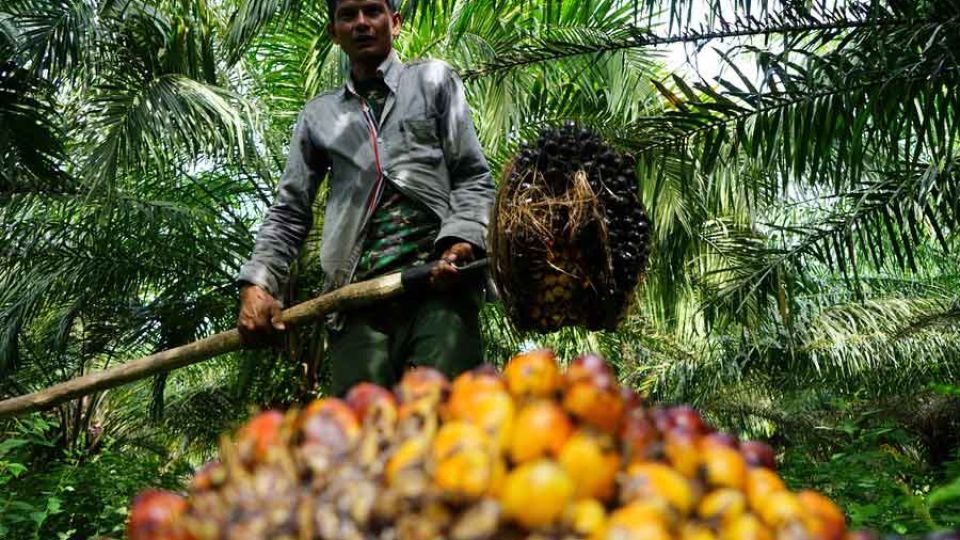May 27, 2025
JAKARTA – Indonesia has the opportunity to wrap up a long-delayed free trade deal with the European Union after the bloc officially placed Indonesia in its “standard-risk” deforestation law category, a step seen by businesses as a signal that could boost exports of palm oil, coffee, cacao and other commodities.
“Yes […] we’re in the middle of finalization, and the EU seems to be easing now as we near the final stage,” Trade Minister Budi Santoso said on Wednesday, confirming that Indonesia was not among the countries deemed high risk under the EU’s Deforestation Regulation (EUDR).
He noted that the EU’s move emerged during the final talks to conclude the Indonesia-EU Comprehensive Economic Partnership Agreement (I-EU CEPA), which was expected to be finalized by mid-year.
Negotiations on the trade pact began in 2016, but multiple deadlines to conclude them have been missed.
“A lot of changes are happening, including things like that,” he added.
Indonesia, the world’s largest palm oil producer, has raised concerns over EU law banning imports of commodities linked to deforestation after 2020, as well as requiring traceability and geolocation coordinates of commodities subject to the regulation, effective for large companies from the end of this year.
The country was featured among standard-risk countries while only Russia, Belarus, North Korea and Myanmar were placed in the high-risk category, Reuters reported on Friday.
The rule’s country benchmarking system classifies nations as low, standard or high risk to minimize the EU’s role in global deforestation, with lighter checks for low-risk countries.
The decision to categorize only those four countries as “high-risk” has raised eyebrows and sparked criticism from environmental groups, with a coalition of 40 NGOs warning the European Commission in an open letter that “premature conclusions could politicize the benchmarking process.”
The list is due to be formalized by June 30.
Businesses welcomed Indonesia’s exclusion from the high-risk group, but many said the real prize remained the “low-risk” label, a classification that would ease due diligence and cut export costs, especially for small players.
“It’s a good thing for us, especially for our small- and medium-sized exporters still struggling with the high cost of traceability,” Indonesian Coffee Exporters and Industries Association (AEKI) chairman Moelyono Soesilo told The Jakarta Post on Friday.
About a quarter of Indonesia’s coffee exports go to Europe, but demand has stagnated since 2023 as local beans lost out in competition to Vietnam and Brazil. Easier compliance could help revive exports, Moelyono added.
For palm oil exporters, the stakes are even higher. Indonesia shipped 3.3 million tonnes of crude palm oil (CPO) to the EU in 2024 and hopes that could grow to 4 million tonnes annually once the new rules take effect.
“We were hoping Indonesia will be classified as low risk […] that would bring greater perks,” Indonesian Palm Oil Association (GAPKI) chairman Eddy Martono told the Post on Thursday.
Under the EUDR, companies from low-risk countries need to conduct full due diligence on only 1 percent of shipments, while standard-risk countries must check 3 percent.
But recent guidance clarified that due diligence is not required for every shipment if goods come from the same supplier and are destined for the same buyer or corporate group.
This reduces the administrative load for recurring transactions between verified partners. “I believe this should ease the burden quite a bit,” Eddy said.
Indonesian Cocoa Board chairman Soetanto Abdullah warned that soaring bean prices over the past year had pushed many multinational companies to halt purchases.
If EUDR compliance pushed costs even higher, he said, more buyers might back out entirely, shrinking global chocolate supply.
“Are chocolate lovers in Belgium, Switzerland and Germany ready to give up chocolate?” he told the Post on Friday.
Chris Humphrey, executive director of the EU-ASEAN Business Council, called the EU’s softened stance both timely and expected.
“It’s a welcome development, if Indonesia had landed in the high-risk category, it could’ve harmed the I-EU CEPA finalization,” Humphrey told the Post on Friday.
He added that proposed changes to the EU’s other flagship green law, the Corporate Sustainability Due Diligence Directive (CSDDD), were also viewed as business-friendly.
The CSDDD requires large companies to police environmental and labor practices throughout their supply chains. It has yet to take effect but faces growing opposition from industries.
This entails tracking the deforestation and pollution they and their suppliers and subcontractors cause, as well as other issues, like forced labor, and taking steps to curtail them.
Economic uncertainty in Europe, much of it tied to the impact of recent United States tariff policies, had intensified pressure on the EU to improve its competitiveness and strengthen ties with ASEAN, Humphrey added.
“While companies will still aim to meet high supply chain standards due to consumer pressure, easing the rules would reduce regulatory and cost burdens,” he continued.
The CSDDD’s future is uncertain after French President Emmanuel Macron and German Chancellor Friedrich Merz urged the EU to scrap it entirely, AFP reported on Friday.
European Commission spokeswoman Paula Pinho insisted the regulation was still “alive,” though many observers say the call from Europe’s two biggest economies could seal its fate.
The pivot reflected EU efforts to adjust to geopolitical and economic pressures, said Muhammad Habib Abiyan Dzakwan of the Centre for Strategic and International Studies (CSIS), noting that not all countries were ready to meet its strict regulations, and that the bloc itself needed stronger economic ties with the rest of the world.
“The current declining interest in the green trajectory may lend more space and time for Indonesia to improve itself, but it doesn’t mean that this room for reform will be there forever,” Habib told the Post on Friday.


